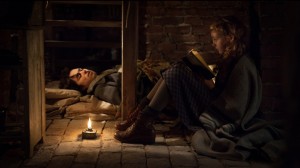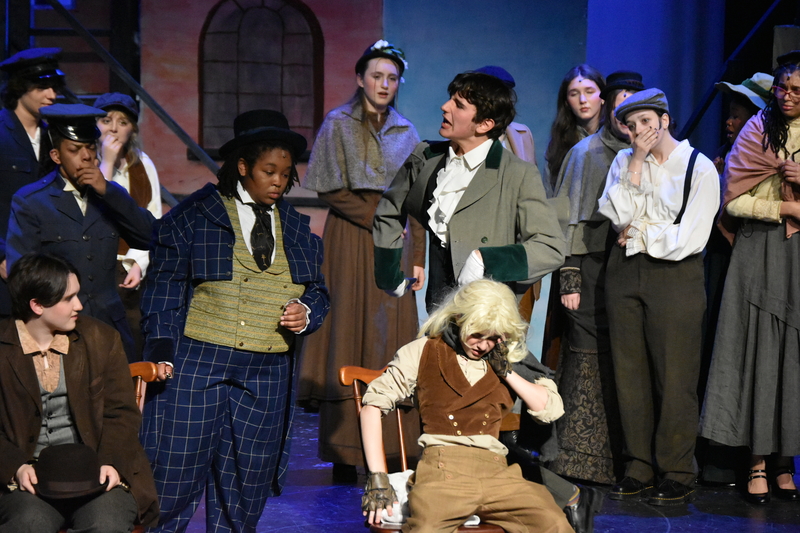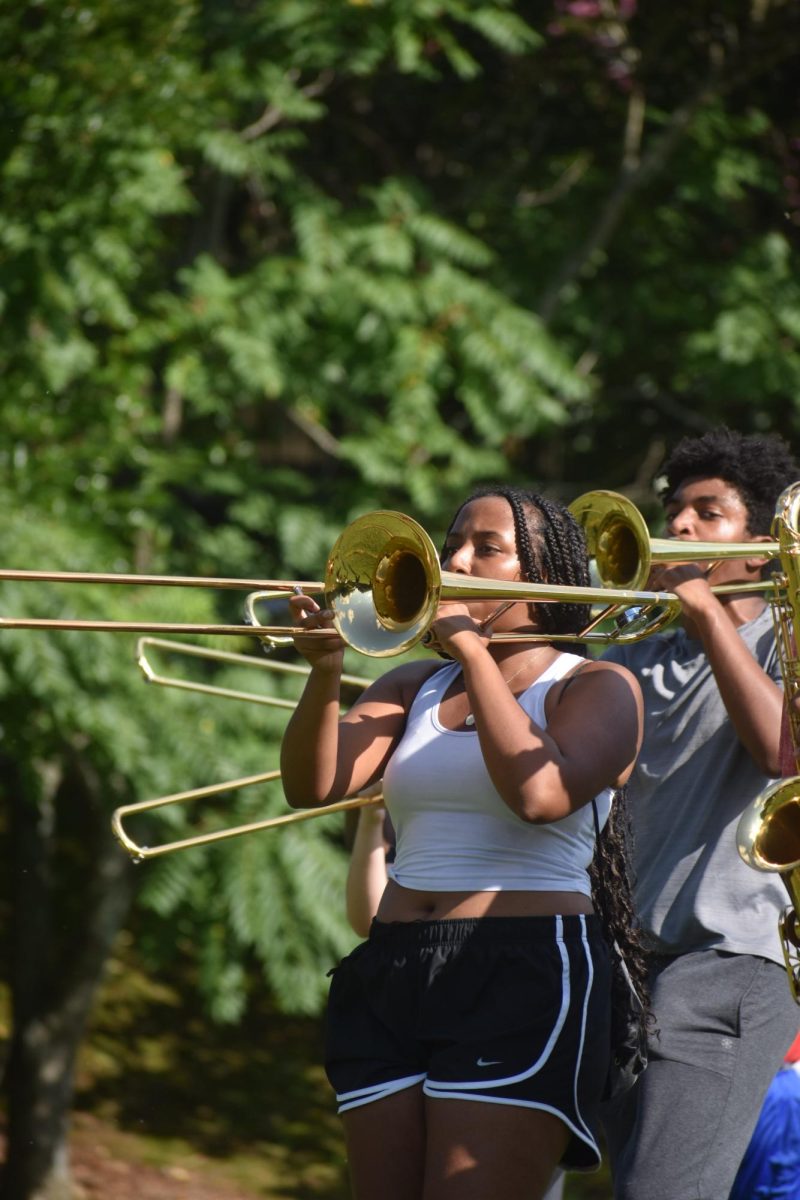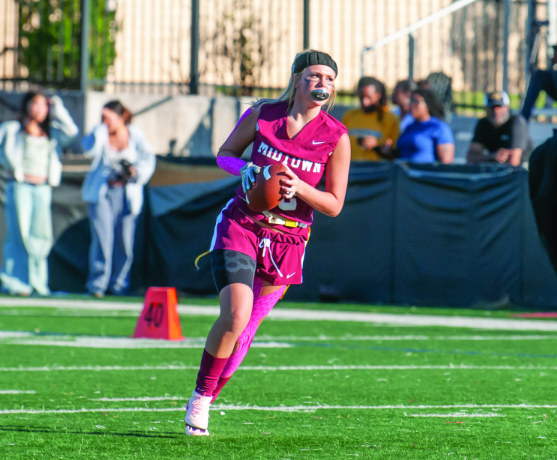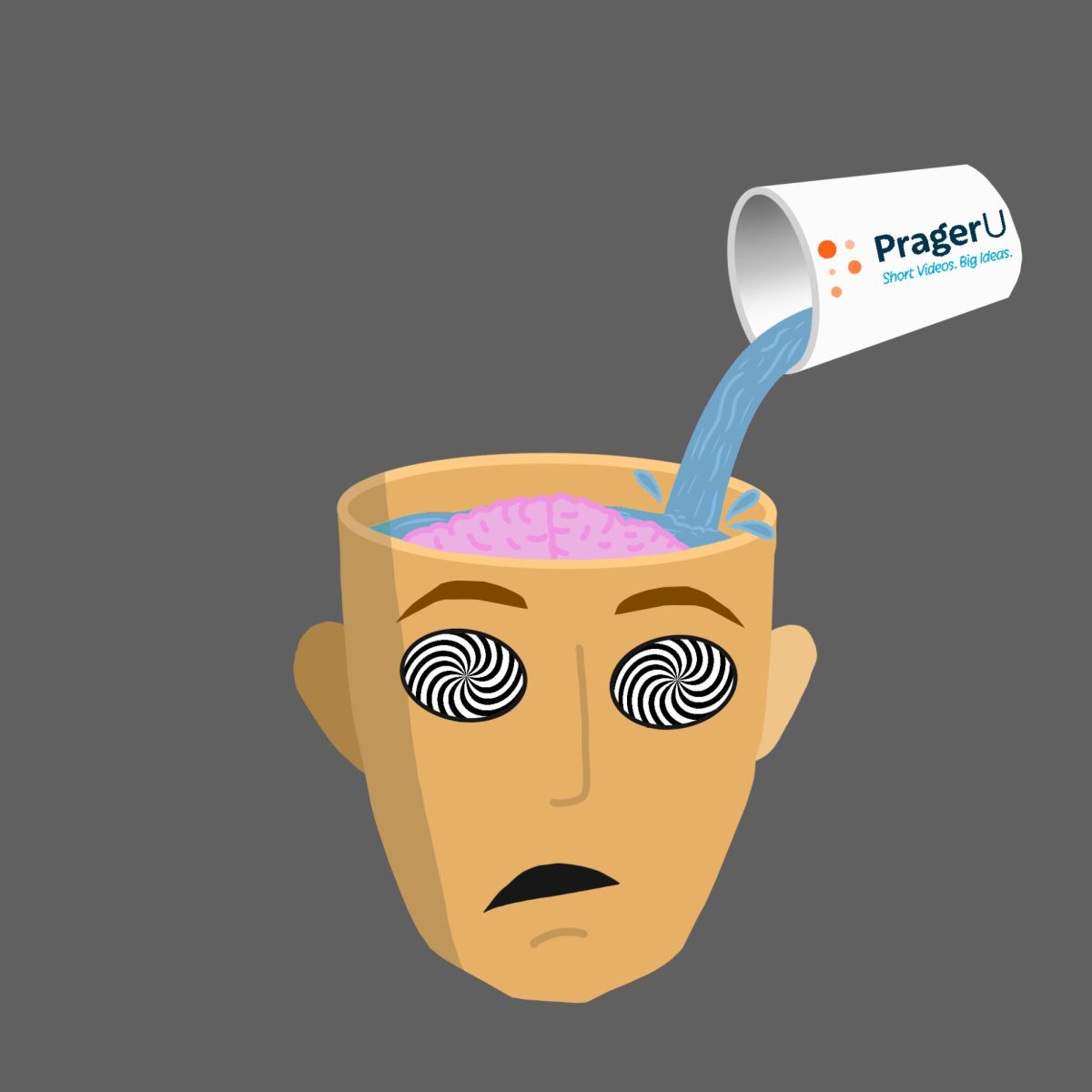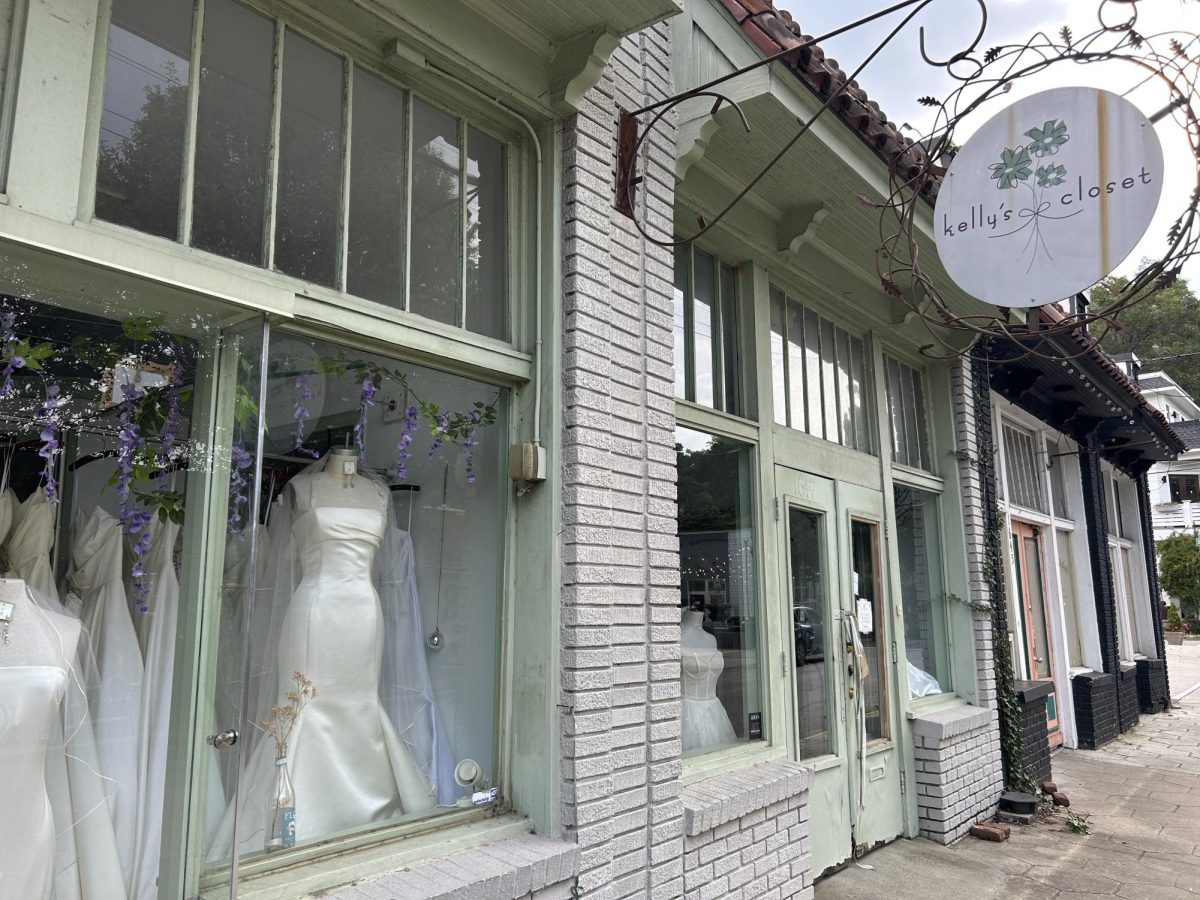The Book Thief by Markus Zusak, is now a movie. The Book Thief premieres on the big screen Friday, Nov. 22. As a member of the (occassionally) working press, I was fortunate enough to attend an advanced screening on Oct. 30.
The story is that of a young girl named Liesel (played by Sophie Nélisse) and her coming of age in Germany during World War II. On her journey, Liesel learns from the people around her: Hans and Rosa, her foster parents, Rudy, a neighbor she befriends, and Max, a Jew hidden in her basement. The book was a huge success. Eight million copies have been sold worldwide, it was placed on The New York Times best-seller list for almost seven years, and it won a number of literary awards. Director Brian Percival tackled the huge task of bringing the book to life.
After the screening of the movie, people were asked to write one word describing it on a blackboard. It could be anything, thoughts, feelings, summations. It was all there, everything from “words” to “inspiring” was scrawled across the board. There was even a hashtag at the bottom corner. Seeing the blackboard, almost white with all the chalked on words, was so meaningful especially after watching the film (but I won’t give too much away).
After the screening, I was invited to a roundtable discussion with Zusak, Percival and Nélisse. The event was held at the Ritz-Carlton Hotel, where, although there was no table, round or otherwise, we were provided with breakfast sweets and a comfy space in a hotel room.
I, along with three other school reporters, waited in the room for a while, until Nélisse entered going down the row to shake the hands of all the assembled press members before she slipped off her shoes and curled up on one end of the couch facing us. Zusak and Percival followed behind and took the two remaining seats on the couch. Then, they opened the conversation to us for questions and dedicated 20 minutes of their time to answer our questions.
The movie had to capture 560 pages into 131 minutes of film. The main focus was to capture the essence of the book in the movie.
“If you said to me what was the book about, I’d say it’s about a girl growing up in Nazi Germany,” Zusak said. “You know, you’ve got people destroying people with words and you’ve got a girl who’s stealing the words back and writing her own story with them. And to me, that’s kind of what the film’s about as well.”
The movie was able to incorporate most scenes and events from the book, though one that did not make the cut was one of Max fantasizing about a boxing match with Hitler. Although Percival felt that this was a powerful scene in the book, he said putting it into the movie would detract from the realism he wanted to create.
“You get an actor to play Hitler somehow, that then tells us it’s fantasy,” Percival said.
Besides condensing the entire novel into a shorter film version, another challenge Percival faced was the characterization of death as the narrator. He said originally the screenplay included many lines for Death, but as filming began, Percival realized scenes would show movie-watchers what Death was seeing, so there was no need to tell.
“We tried to minimize [Death’s] voice and I opted to use the camera to remind the the audience that we’re seeing this from his perspective,” Percival said.
Percival said he positioned cameras up high or looking down on a scene to create the effect of looking at certain events through our narrator’s eyes.
The next challenge was to find a voice for Death. Percival wanted someone whose voice would match the characterization created in the book, in which he comes off as “quite witty and quite wise and quite wry,” he explained. He said this portrayal has made people less afraid of dying, and he wanted the movie to have that same effect. Percival settled on Roger Allam, a British Shakespearean actor.
“Roger did a test for us because when I cut the film, I needed a voice to put in the film, in the edited film, and everybody just loved him, you know, they just loved that voice and the velvety softness, so he stayed.”
Actors also faced challenges of their own. While directors decided upon casting, lighting and camera angles, Nélisse focused on developing her own character. Nélisse had to portray seven different ages, from 11 to 17, which she said was her favorite part of the character. She also said she enjoyed the different dresses and hairstyles that accompanied each age shift. One of the hard parts was conveying her character’s emotional state.
“[It was] the most terrible day, I had to cry all day,” Nélisse said. “It was kind of depressing, but at the end, and the end of the day I think I was really proud that I was like – well I was happy to be done with it – but I was proud that I like made it through and I think, I think I did it well.”
Overall, Zusak, Percival, and Nélisse all said they hoped the audience would take away a deeper meaning than just the plot of the movie.
“The power of books,” Nélisse said was the main thing she hoped people took away. She also said she wants people to go out and read the book and also make an effort to learn about the Holocaust.
“I suppose it’s that life is really quite precious, and people around you matter a great deal,” Percival said.
“I just want people to make up their own minds because that’s what the characters in the story do,” Zusak said, “I love the idea that you can leave a book and you can leave a film, walking out, and you start to make – you start to fill in the pages, you start to fill in the scenes – and you start to write your own stories about those characters, and in doing that you start to write about yourself.”

